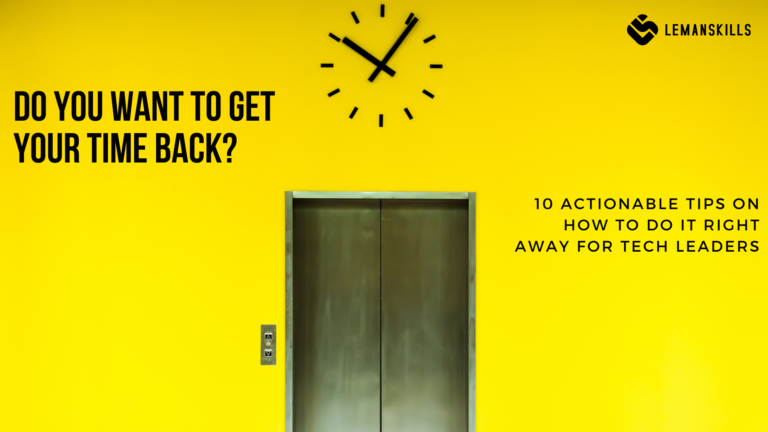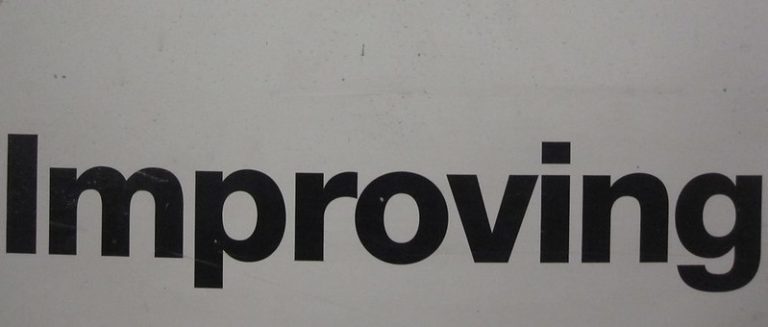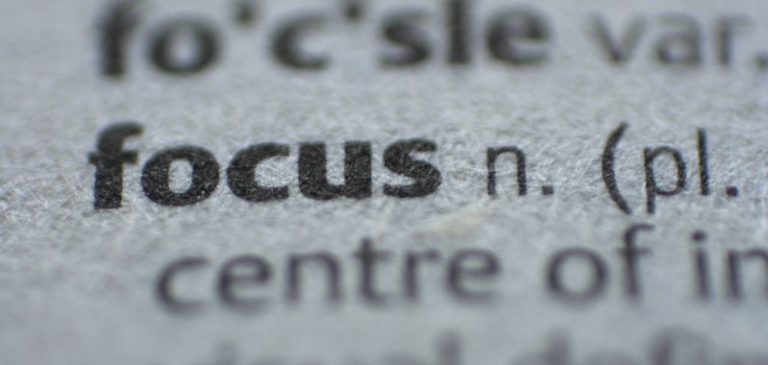
10 Ways to Get Your Time Back: Practical Tips for a Tech Leader
As a Tech Leader, your day is likely filled with endless meetings, urgent emails, project deadlines, and unexpected crises. It’s easy to feel like there’s never enough time to focus on what truly matters—whether that’s strategic thinking, team development, or even your own well-being. But here’s the good news: with a few intentional changes, you can reclaim your time and focus on what drives real impact. This isn’t about pretty theories or abstract advice. Below, you’ll find 10 practical, actionable tips that you can start implementing today to get your time back. Interested? Let’s get to it! #1 Audit Your Calendar Your calendar tells the story of where your time goes—and often, it’s not a pretty picture. Start by reviewing your calendar for the past two weeks. Ask yourself: Which meetings were truly necessary? Could some have been shorter? Were there meetings I didn’t need to attend at all as a leader of my team? Depends on the answers, make some shifts. Move meetings around, if you have influence on them: put them in the time of the day that you’re not in your genius zone. Use the calendar as you source of power, not a thing you are a slave of. Actionable Tip: For every recurring meeting on your calendar, apply the “zero-based budgeting” approach. Assume the meeting doesn’t need to exist unless there’s a compelling reason to keep it. For meetings you do keep, limit them to 25 or 50 minutes instead of the standard 30 or 60 minutes—this will force more focused discussions and give you breathing room between calls. #2 Delegate Like a Pro Leader Tech Leaders often fall into the trap of trying to do everything themselves—whether it’s troubleshooting a technical issue or reviewing every line of code. But delegation isn’t just about offloading tasks; it’s about empowering your team and creating space for you to focus on higher-level priorities. Actionable Tip: Use the “3D Framework” for tasks: Do it, Delegate it, or Delete it. If a task doesn’t absolutely require your expertise, delegate it to someone who can handle it. And if it doesn’t add value, delete it altogether. Make sure of good contracting around the delegation though: it needs to be clear, including context, checking on the skillset of the person who’s going to get the task. Be smart here; don’t assume: ask. #3 Batch Similar Tasks Together Switching between tasks—like coding, answering emails or Slack / Teams messages, and attending meetings—can drain your mental energy and waste time. Instead, group similar tasks together and tackle them in dedicated blocks of time. Actionable Tip: Create “themed” days or blocks of time. For example: – Monday mornings: Strategic planning – Tuesday afternoons: One-on-ones with team members – Friday mornings: Deep work on a long-term project When you batch tasks, you reduce context-switching and increase focus. Let’s say it once for good: there’s no such thing as multitasking. You can switch between tasks really quickly, but it has its cost. Reduce it, be more focused and you’ll see the difference in your efficiency and energy level as a leader. #4 Say “No” More Often Every time you say “yes” to something, you’re saying “no” to something else—often your own priorities. Learning to say “no”, or “yes, and…” is one of the most powerful ways to protect your time as a Tech Leader. Actionable Tip: When someone asks for your time, don’t respond immediately. Instead, say: “Let me think about it and get back to you.” This gives you space to evaluate whether the request aligns with your goals. If it doesn’t, politely decline or suggest an alternative solution. Remember about being in OK-OK space: you don’t want to be rude or aggressive; boundary setting is not about hurting others, it’s about protecting yourself. #5 Leverage Asynchronous Communication Not every conversation needs to happen in real-time. In fact, asynchronous communication can save you hours each week by reducing unnecessary meetings and interruptions. Actionable Tip: Use tools like Slack, MS Teams, or Loom to communicate asynchronously. For example, instead of scheduling a meeting to discuss a project update, record a short video or write a detailed message outlining the key points and next steps. Bonus Tip: Set clear expectations for response times in asynchronous channels (i.e., “respond within 24 hours”) so everyone stays aligned without feeling pressured to reply instantly. #6 Automate Repetitive Tasks If you’re spending time on repetitive tasks that could be automated, you’re leaving valuable hours on the table. Automation isn’t just for developers—it’s a key productivity tool for all of us, regardless of our role in the organization. Actionable Tip: Identify one repetitive task you handle weekly (i.e., generating reports, scheduling meetings, answering emails) and automate it using tools like Zapier, IFTTT, or custom scripts. Example: Automate status updates by integrating project management tools like Jira or Trello with Slack so your team gets real-time progress updates without manual intervention. #7 Create Decision-Making Frameworks Decision fatigue is real—and as a tech leader, you’re probably making dozens of decisions every day. And we have a limited decision capacity: we make around 35,000 decisions daily, but less than 100 are optimal. Creating frameworks can help streamline this process and free up mental energy for more important work and more capacity for better decisions. Actionable Tip: Develop simple decision-making criteria for recurring situations. For example: Hiring decisions: Does this candidate have at least 70% of the required skills? Project prioritization: Does this initiative align with our top three business goals? Task selection: Does this task bring me closer to the OKRs I have on my list for this quarter? By standardizing decisions, you’ll spend less time deliberating and more time executing. #8 Adopt a “Less is More” Leadership Mindset In Tech Leadership, more isn’t always better—more features, more meetings, more initiatives can lead to diminishing returns. Focus on doing fewer things exceptionally well rather than spreading yourself too


